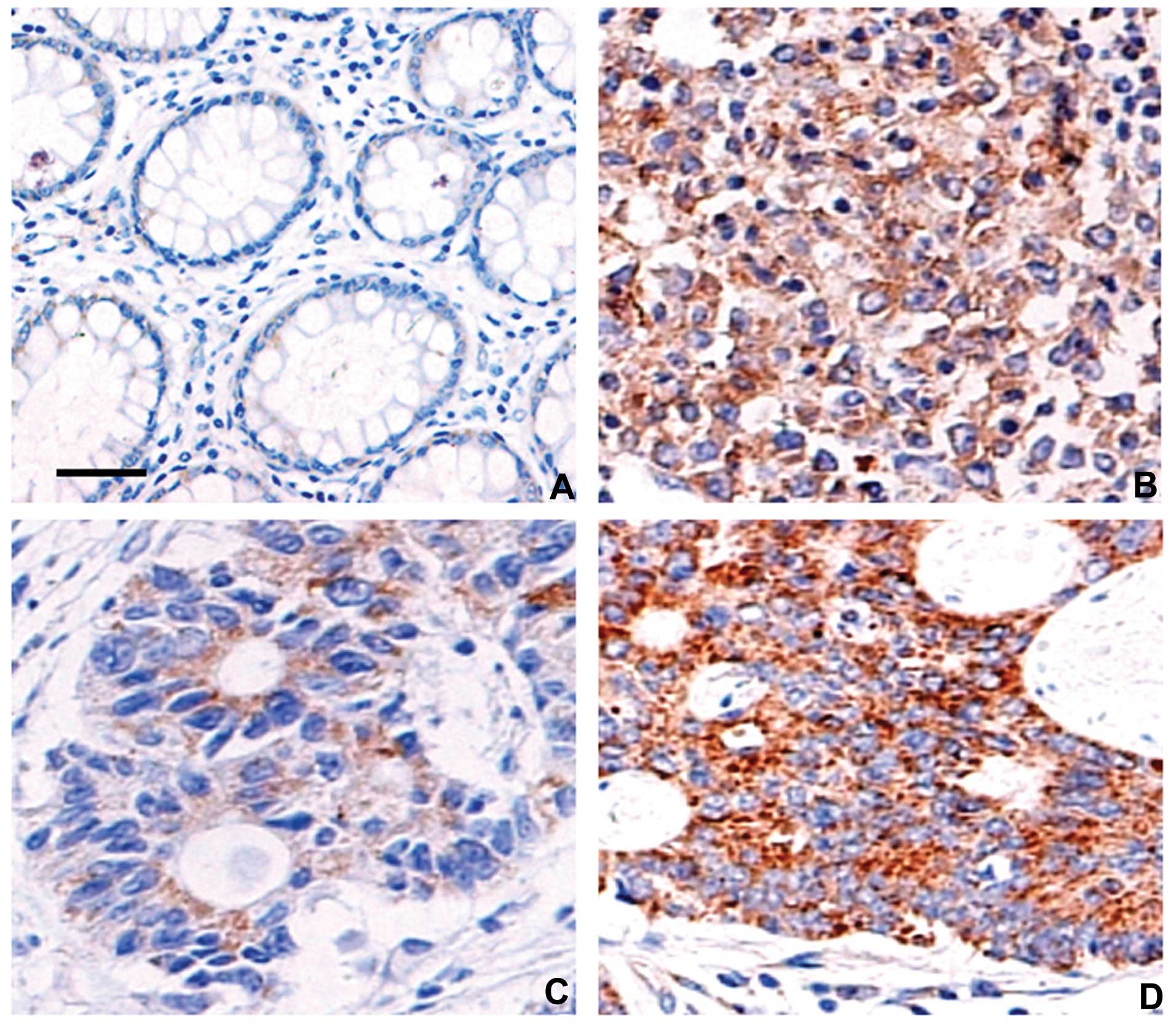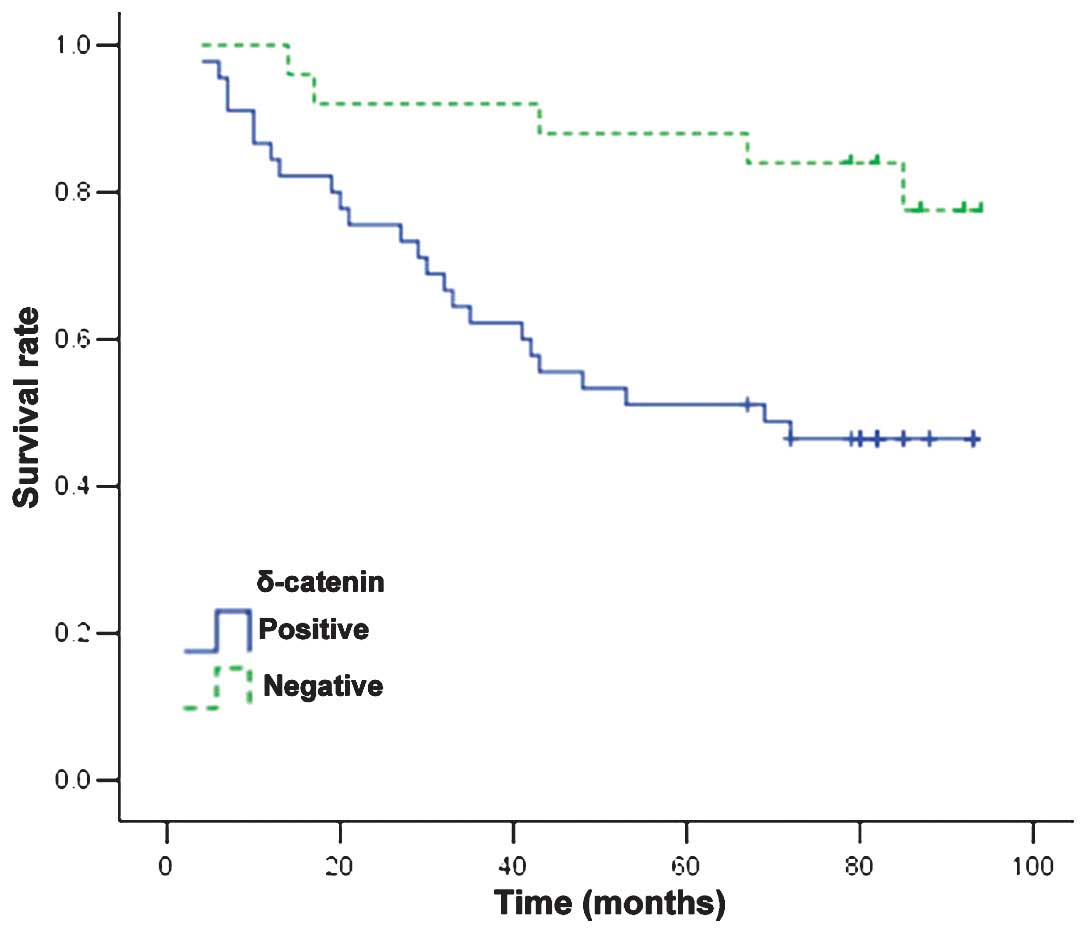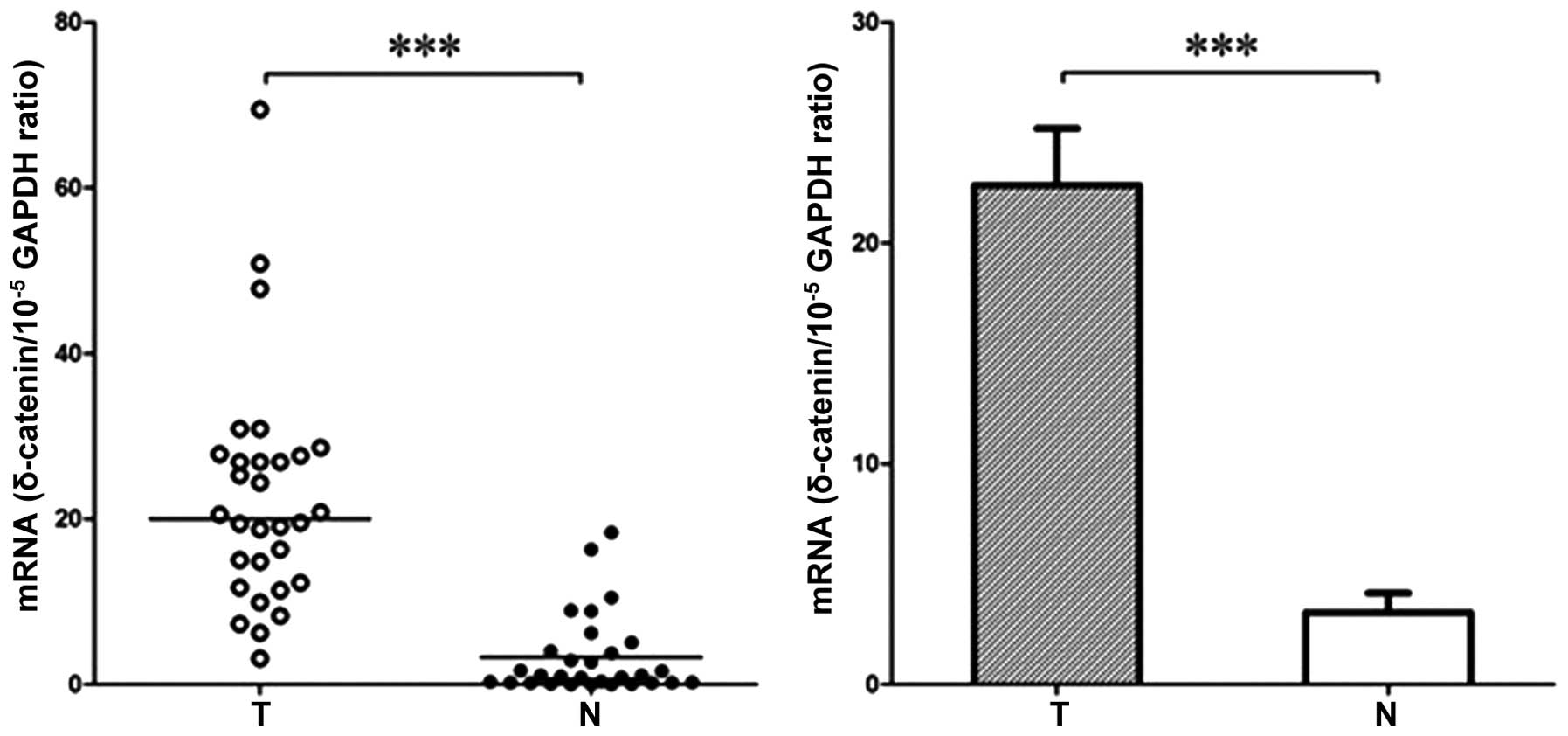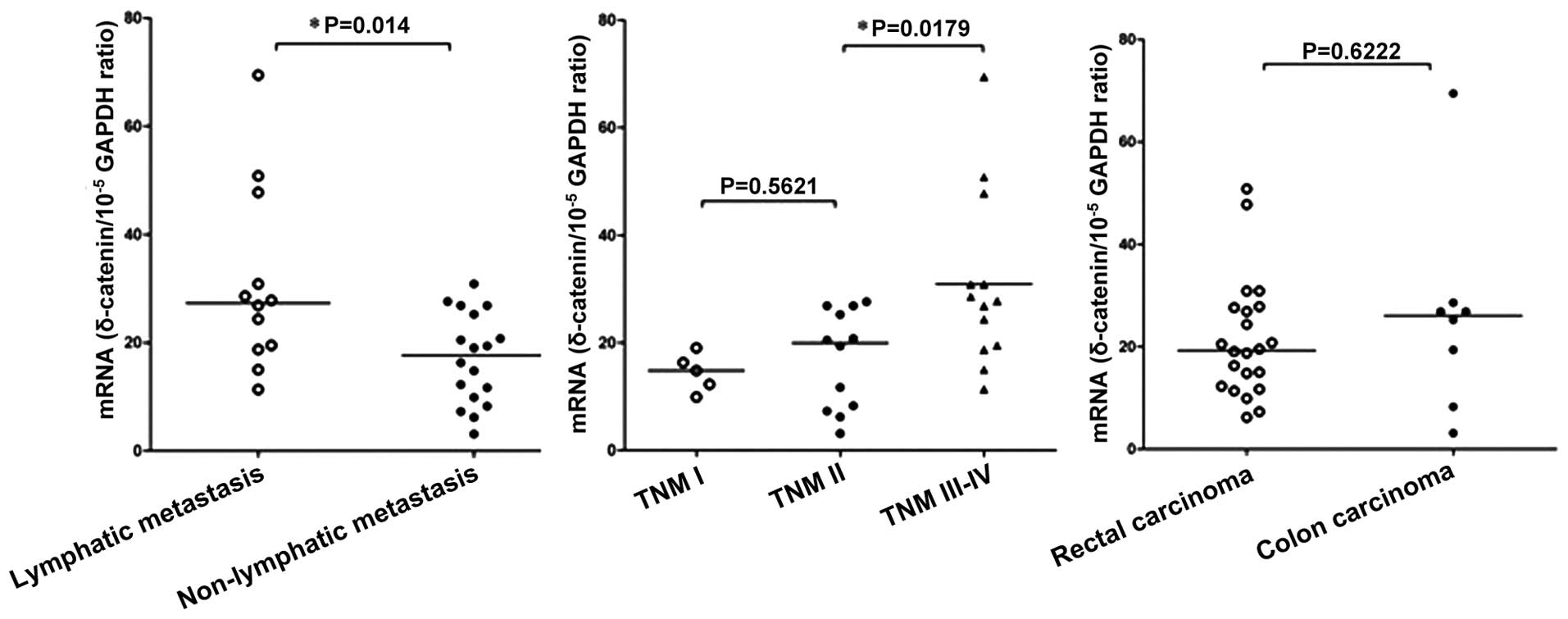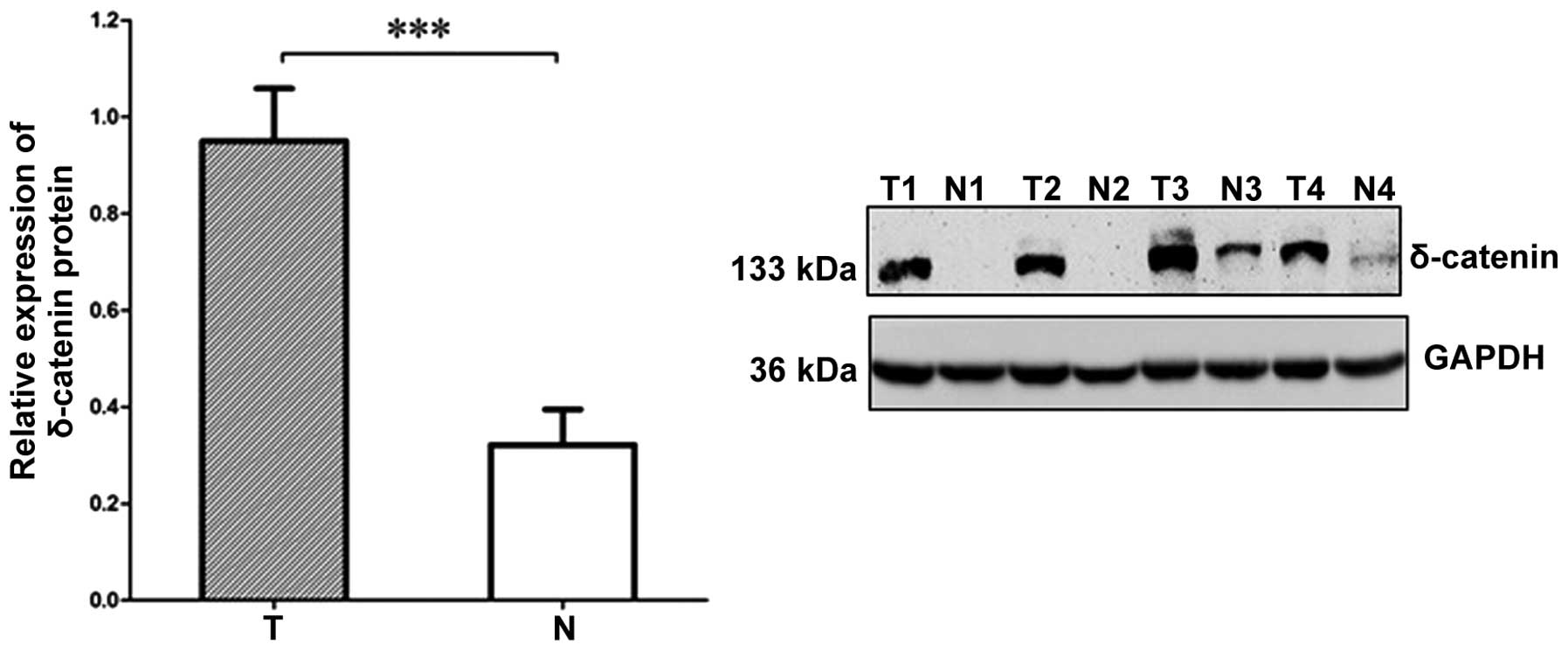|
1
|
Boedefeld WM II, Bland KI and Heslin MJ:
Recent insights into angiogenesis, apoptosis, invasion and
metastasis in colorectal carcinoma. Ann Surg Oncol. 10:839–851.
2003. View Article : Google Scholar : PubMed/NCBI
|
|
2
|
Gumbiner BM: Regulation of
cadherin-mediated adhesion in morphogenesis. Nat Rev Mol Cell Biol.
6:622–634. 2005. View
Article : Google Scholar : PubMed/NCBI
|
|
3
|
Makrilia N, Kollias A, Manolopoulos L and
Syrigos K: Cell adhesion molecules: Role and clinical significance
in cancer. Cancer Invest. 27:1023–1037. 2009. View Article : Google Scholar : PubMed/NCBI
|
|
4
|
Paffenholz R and Franke WW: Identification
and localization of a neurally expressed member of the
plakoglobin/armadillo multigene family. Differentiation.
61:293–304. 1997. View Article : Google Scholar : PubMed/NCBI
|
|
5
|
Zhou J, Liyanage U, Medina M, Ho C,
Simmons AD, Lovett M and Kosik KS: Presenilin 1 interaction in the
brain with a novel member of the Armadillo family. Neuroreport.
8:2085–2090. 1997. View Article : Google Scholar : PubMed/NCBI
|
|
6
|
Tanahashi H and Tabira T: Isolation of
human delta-catenin and its binding specificity with presenilin 1.
Neuroreport. 10:563–568. 1999. View Article : Google Scholar : PubMed/NCBI
|
|
7
|
Burger MJ, Tebay MA, Keith PA, Samaratunga
HM, Clements J, Lavin MF and Gardiner RA: Expression analysis of
delta-catenin and prostate-specific membrane antigen: Their
potential as diagnostic markers for prostate cancer. Int J Cancer.
100:228–237. 2002. View Article : Google Scholar : PubMed/NCBI
|
|
8
|
Lu Q, Dobbs LJ, Gregory CW, Lanford GW,
Revelo MP, Shappell S and Chen YH: Increased expression of
delta-catenin/neural plakophilin-related armadillo protein is
associated with the down-regulation and redistribution of
E-cadherin and p120ctn in human prostate cancer. Hum Pathol.
36:1037–1048. 2005. View Article : Google Scholar : PubMed/NCBI
|
|
9
|
Zhang JY, Wang Y, Zhang D, Yang ZQ, Dong
XJ, Jiang GY, Zhang PX, Dai SD, Dong QZ, Han Y, et al:
delta-Catenin promotes malignant phenotype of non-small cell lung
cancer by non-competitive binding to E-cadherin with p120ctn in
cytoplasm. J Pathol. 222:76–88. 2010.PubMed/NCBI
|
|
10
|
Dai SD, Wang Y, Zhang JY, Zhang D, Zhang
PX, Jiang GY, Han Y, Zhang S, Cui QZ and Wang EH: Upregulation of
δ-catenin is associated with poor prognosis and enhances
transcriptional activity through Kaiso in non-small-cell lung
cancer. Cancer Sci. 102:95–103. 2011. View Article : Google Scholar
|
|
11
|
Sobin LH and Wittekind C: Colon and
rectum. TNM classification of malignant tumors. 6th edition. New
York: Wiley, John & Sons; pp. 72–76. 2002
|
|
12
|
Bosman FT, Carneiro F, Hruban RH and
Theise ND: WHO Classification of Tumors of the Digestive System.
4th edition. IARC press; Lyon: 2010
|
|
13
|
Bustin SA, Benes V, Garson JA, Hellemans
J, Huggett J, Kubista M, Mueller R, Nolan T, Pfaffl MW, Shipley GL,
et al: The MIQE guidelines: minimum information for publication of
quantitative real-time PCR experiments. Clin Chem. 55:611–622.
2009. View Article : Google Scholar : PubMed/NCBI
|
|
14
|
Schmittgen TD and Livak KJ: Analyzing
real-time PCR data by the comparative C (T) method. Nat Protoc.
3:1101–1108. 2008. View Article : Google Scholar
|
|
15
|
Lu Q, Paredes M, Medina M, Zhou J, Cavallo
R, Peifer M, Orecchio L and Kosik KS: delta-catenin, an adhesive
junction-associated protein which promotes cell scattering. J Cell
Biol. 144:519–532. 1999. View Article : Google Scholar : PubMed/NCBI
|
|
16
|
Jones SB, Lanford GW, Chen YH, Morabito M,
Kim K and Lu Q: Glutamate-induced delta-catenin redistribution and
dissociation from postsynaptic receptor complexes. Neuroscience.
115:1009–1021. 2002. View Article : Google Scholar : PubMed/NCBI
|
|
17
|
Martinez MC, Ochiishi T, Majewski M and
Kosik KS: Dual regulation of neuronal morphogenesis by a
delta-catenin-cortactin complex and Rho. J Cell Biol. 162:99–111.
2003. View Article : Google Scholar : PubMed/NCBI
|
|
18
|
Kim K, Sirota A, Chen YH, Jones SB, Dudek
R, Lanford GW, Thakore C and Lu Q: Dendrite-like process formation
and cytoskeletal remodeling regulated by delta-catenin expression.
Exp Cell Res. 275:171–184. 2002. View Article : Google Scholar : PubMed/NCBI
|
|
19
|
Paffenholz R, Kuhn C, Grund C, Stehr S and
Franke WW: The arm-repeat protein NPRAP (neurojungin) is a
constituent of the plaques of the outer limiting zone in the
retina, defining a novel type of adhering junction. Exp Cell Res.
250:452–464. 1999. View Article : Google Scholar : PubMed/NCBI
|
|
20
|
Lu Q, Mukhopadhyay NK, Griffin JD, Paredes
M, Medina M and Kosik KS: Brain armadillo protein delta-catenin
interacts with Abl tyrosine kinase and modulates cellular
morphogenesis in response to growth factors. J Neurosci Res.
67:618–624. 2002. View Article : Google Scholar : PubMed/NCBI
|
|
21
|
Lu Q, Abdul A, Chen YH, et al: δ-Catenin
has the potential to promote the proliferation/survival and
invasiveness of human cancer cells. Mol Biol Cell. 14:3412003a.
|
|
22
|
Kim K, Oh M, Ki H, Wang T, Bareiss S, Fini
ME, Li D and Lu Q: Identification of E2F1 as a positive
transcriptional regulator for delta-catenin. Biochem Biophys Res
Commun. 369:414–420. 2008. View Article : Google Scholar : PubMed/NCBI
|
|
23
|
Wang T, Chen YH, Hong H, Zeng Y, Zhang J,
Lu JP, Jeansonne B and Lu Q: Increased nucleotide polymorphic
changes in the 5′-untranslated region of delta-catenin (CTNND2)
gene in prostate cancer. Oncogene. 28:555–564. 2009. View Article : Google Scholar :
|















